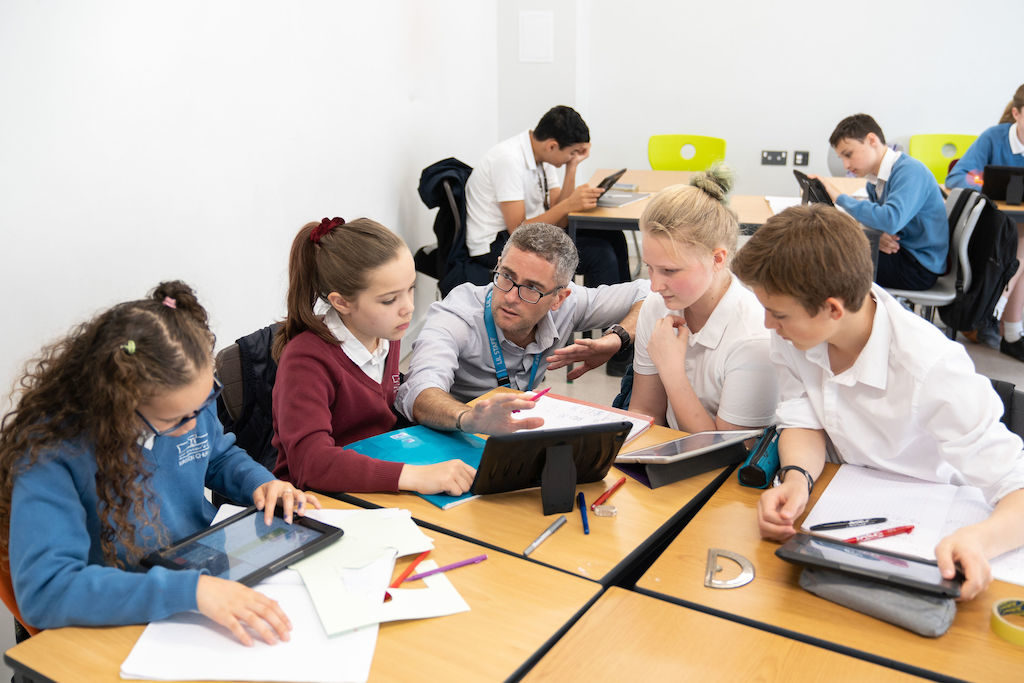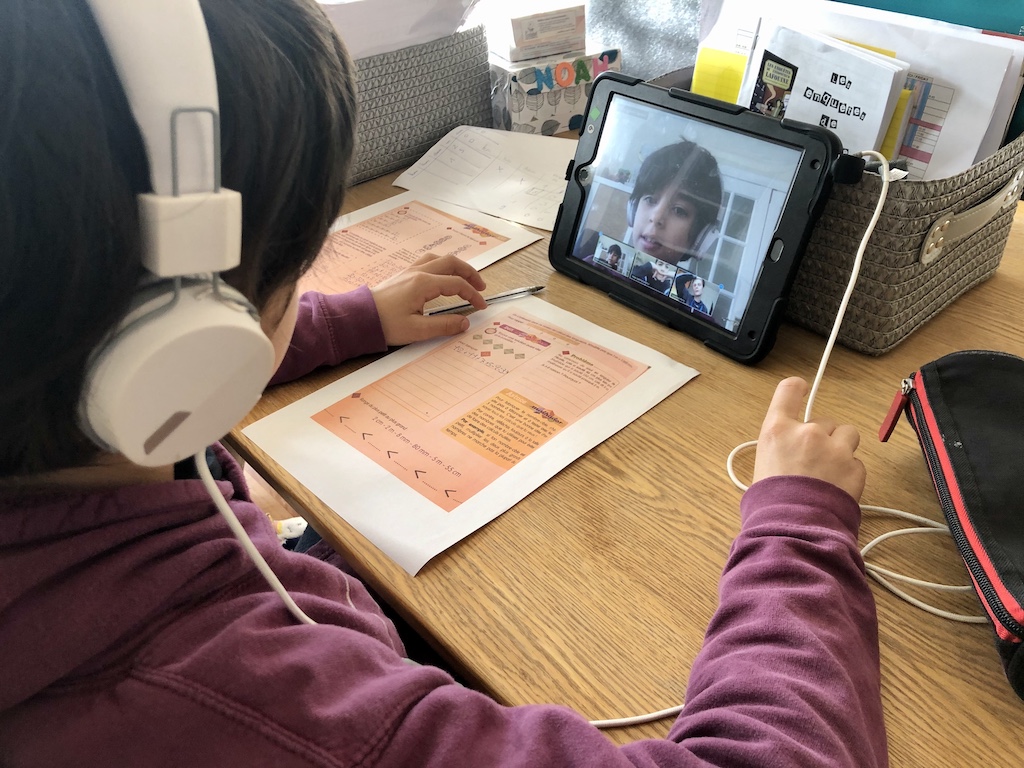Lycée International de Londres Winston Churchill
By
5 years ago

Learning, enhanced.
At the bilingual Lycée International de Londres Winston Churchill, up-to-date technology is woven smartly into education and campus life, helping students learn interactively and develop digital life skills

Long before the first students arrived at Lycée International de Londres Winston Churchill in 2015, innovative use of technology was woven deeply into the school’s guiding philosophy. The Lycée’s mission is to prepare young people to succeed in 21st century life and careers – mastery of digital tools isn’t just a critical skill but also underpins emerging modes of working and social interaction.
Located on a five-acre campus in north London and housed in a magnificent Art Deco building, Lycée Churchill is a co-ed independent bilingual school serving 900 students from ages three to 18. It offers both the French baccalauréat and the English-language International Baccalaureate Diploma Programme, and aims to develop each child into a forward-thinking, principled and joyful citizen.
What really sets the school apart is an enlightened educational ethos that blends traditional disciplines with initiative, exploration, critical thinking, teamwork and individual development in a caring and joyful environment. State-of-the-art technology tools facilitate different rates and styles of learning and enable both collaboration and self-directed study. They’re not just bolted onto traditional pedagogy but rather empower new, more interactive ways of learning.

All secondary section students are provided with iPads, which they use for secure, guided online research and shared projects. A suite of cloud-based Google programmes handles jobs ranging from schedules and lesson plans to homework assignments and teacher feedback. Students use Google Hangouts or Zoom for video conferencing. Another software tool called Pronote gives parents up-to-date information such as grades, report cards, absences and other administrative functions. Additionally, the students themselves are constantly dreaming up creative new ways to use the technology at their disposal.
This strong technical foundation and the fact that digital tools were already deeply embedded into everyday academic life proved an enormous asset when the Lycée was forced to close during the COVID-19 crisis. Unlike some schools that struggled to implement remote education, Winston Churchill made a seamless transition, building on skills and tools the children and teachers already knew. Students followed the same schedule as always, with lessons delivered by live video and plenty of opportunity for online interaction with other pupils. Even subjects that typically require physical presence, such as art, music and PE, carried on as usual, with engaging modifications dreamed up by the teachers.

The response from parents who were themselves struggling to work from home was rapturous. ‘Our children are used to digital tools because they use them every day at school,’ wrote one parent in e-mail feedback. Said another, ‘The distance learning works very well.’ In a landmark 1995 article on technology in classrooms, the computer magazine Byte advised that ‘computers should be used to enhance, not replace, the teacher and supplement, not supplant, traditional teaching methods.’ A quarter of a century later, digital tools have advanced by light years, but not all schools have embraced new ways of learning. Lycée Churchill proves that successful application of technology in education is more about commitment and culture than bits and bytes.
Find Lycée International de Londres Winston Churchill’s online listing here and to find its remote learning page click here



